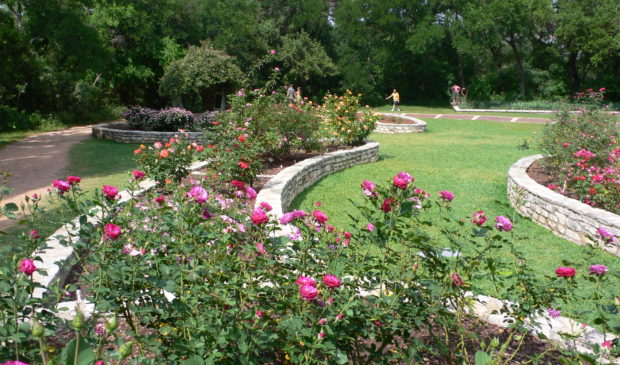Zilker’s botanical garden admission remains unchanged for now
Friday, July 5, 2019 by
Ryan Thornton City Council claimed to have residents in mind at its June 19 meeting when it denied a chance to save some money by giving the Zilker Botanical Garden Conservancy a little more control over the garden’s operations and finances.
In order to make some much-needed improvements, the Conservancy asked Council to raise entrance fees from $2 to $6 for city residents and from $3 to $8 for nonresidents, with fees for youth ages 3-17 increasing from $1 to $3.
While that may look like a win-win both for the city and the Conservancy, Council Member Kathie Tovo said residents should also have a say.
“Our community has multiple times expressed some trepidation around privatization of our park’s assets,” she said. “And so I think we owe it to them to really discuss this more fully and make sure we understand the details of that arrangement.”
In addition to improving the site, Amanda Ross, manager of the Natural Resources Division of the Parks and Recreation Department, told Council on June 19 that the extra funds would also make it possible for the Conservancy to take over operation of the garden gate, currently run by city staff, and save the city those operational costs.
Ross said the Conservancy, which was created in 2014 to reduce the garden’s dependency on Parks and Recreation dollars, was hoping the new fees could take effect Aug. 1 to begin the transition of gate operations as soon as possible.
“Currently there’s about 125,000 visitors to the garden each year and what we’ve found is that, comparing it with what other botanical gardens throughout the United States charge, that we are very much undercharging for it,” she said.
Based on the Conservancy’s analysis, it costs $9.50 in operations for every individual, adults and children alike, who visits the garden. In light of that calculation, and the fact that the proposed entrance fees also cover the cost of parking (currently $5 at Zilker Park), Ross said the new fee structure would be more than fair.
Council Member Ann Kitchen was ready to move forward with the new fees, citing the need for more funding to make a variety of improvements to the attraction, “not the least of which is making it accessible.”
Similarly, Council Member Paige Ellis said the need for better accessibility is a time-sensitive issue that should be addressed immediately.
“The (Capital Metropolitan Transportation Authority) 30 route drops off at Zilker Botanical Garden, but it doesn’t even have the paved platform for people who might have a mobility impairment to be able to get safely to the entrance of the gate,” Ellis noted.
Tovo, however, said the relationship between the city and the Conservancy in this new model was not yet clear enough to take action. And given that ambiguity, the fee increase would be, in her view, both drastic and premature.
“It was in fairly recent memory that the botanical gardens were free to visit, and so with some reluctance I supported imposing a fee – but tripling it with very little Council conversation is just not something I’m really prepared to do,” she said.
The point of creating the Conservancy, Council Member Leslie Pool added, was to raise money from philanthropic organizations or individuals, not to triple entrance fees.
In 2014, the city approved a request from Parks and Recreation to create a salaried position to seek those new funding sources.
“The goal was that it would be funded through philanthropic connections, and the cost that you’re offering, even though it’s less than what you’re calculating the actual cost to be, is pretty high,” she said.
Council rejected the request, preferring to wait for more details, in a 6-4 vote with Council members Jimmy Flannigan, Ellis, Kitchen and Pio Renteria in opposition and Council Member Natasha Harper-Madison off the dais.
Ross said the postponement would likely move the gate operation transition back to Oct. 1, the start of the new fiscal year.
Photo by Heather Cowper made available through a Creative Commons license.
The Austin Monitor’s work is made possible by donations from the community. Though our reporting covers donors from time to time, we are careful to keep business and editorial efforts separate while maintaining transparency. A complete list of donors is available here, and our code of ethics is explained here.
You're a community leader
And we’re honored you look to us for serious, in-depth news. You know a strong community needs local and dedicated watchdog reporting. We’re here for you and that won’t change. Now will you take the powerful next step and support our nonprofit news organization?



